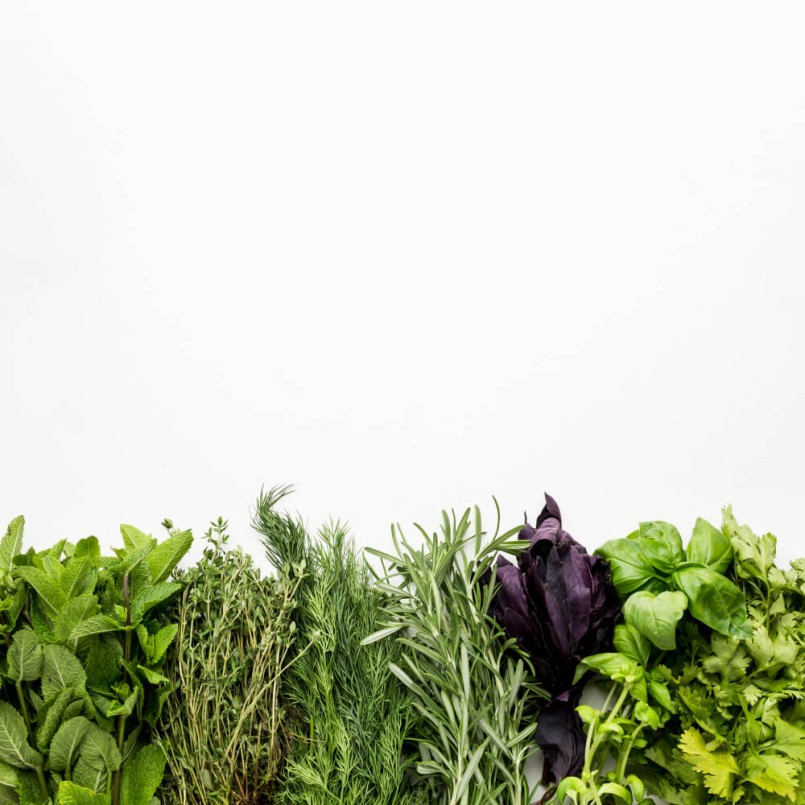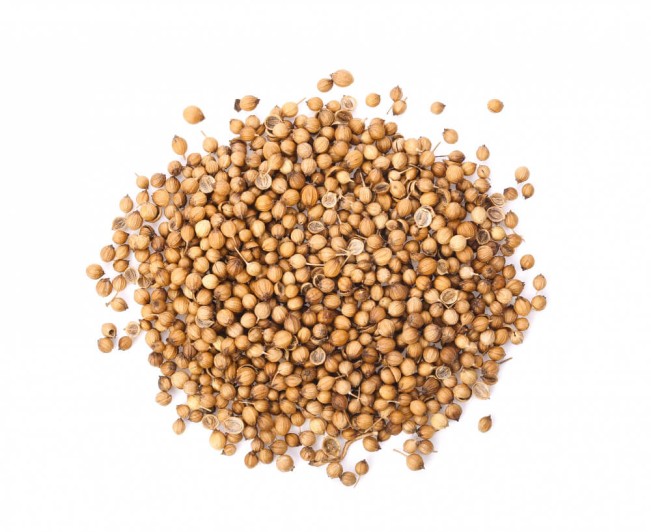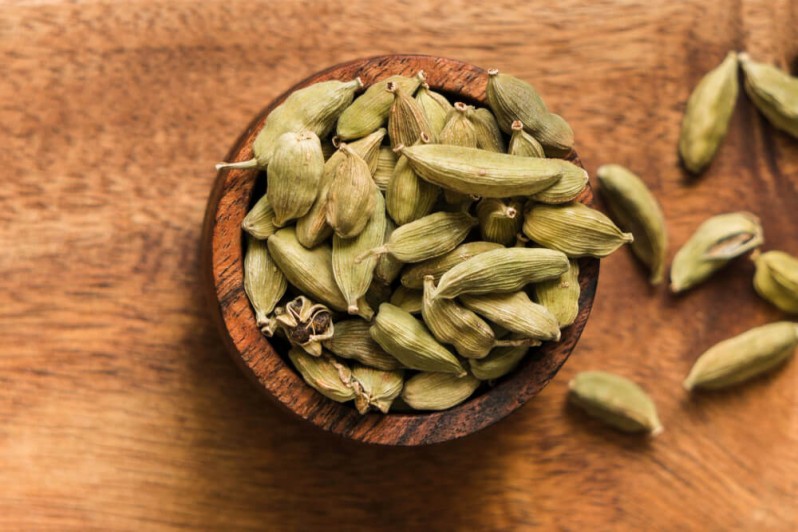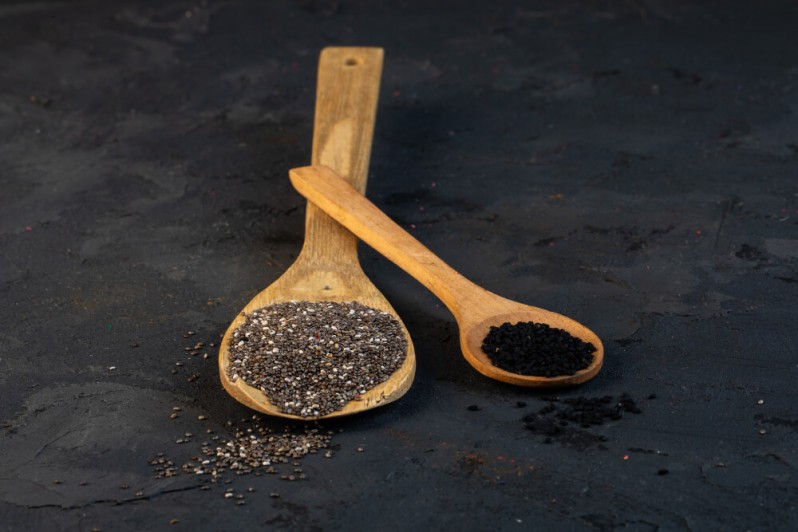
Herbs play an undeniable role in the world of culinary arts. They not only contribute to the taste and aroma of our dishes but also offer numerous health benefits. In this article, we delve deeper into the fascinating world of herbs, from coriander seeds to cardamom, and discover how these unique spices influence our kitchens and our health.

Coriander Seeds: More than Cilantro
If you're familiar with the fresh, citrusy taste of cilantro, you'll be surprised by the depth and complexity that coriander seeds offer. The seeds of this well-known plant provide a very different flavor profile than the leaves. With their earthy, sweet taste, coriander seeds bring a subtle but distinctive aroma that enhances many dishes.
Used in a range of culinary traditions, coriander seeds are a staple in Indian and Middle Eastern cuisines. They are often toasted before being ground to release their full flavor, and they play a key role in a variety of dishes, from curries to stews.
But coriander seeds are more than just a flavoring agent. They are also known for their impressive range of health benefits. Research has shown that coriander seeds have digestive benefits, such as relieving bloating and gas and supporting healthy gut function. The seeds also contain antioxidants, which help fight free radicals in the body.
So adding coriander seeds to your dishes can not only add a new dimension of taste but also contribute to your overall well-being. Give them a try in your next stew or curry and experience the difference.

Fennel Seeds: The Sweet Anise
Fennel seeds, a culinary treasure that tantalizes the senses with its sweet, anise-like flavor, are a celebrated ingredient used for centuries in Mediterranean and Indian kitchens. But it's more than just a spice. Fennel seeds also play a significant role in traditional medicine and offer a range of health benefits.
In the culinary world, fennel seeds are often used in savory dishes such as soups, stews, and sauces, especially in Italian and Indian cuisine. They add a warm, sweet note to any dish and can help balance the flavors of other ingredients.
In India, fennel seeds are often chewed at the end of a meal, not only to freshen the breath but also to promote digestion. It is here that the medicinal properties of fennel seeds truly shine. They have long been appreciated for their ability to alleviate stomach ailments, from bloating and gas to stomach cramps. Studies also suggest that fennel seeds may help relieve symptoms of menopause and improve heart health.
With such a unique combination of taste and nutritional benefits, it's no wonder that fennel seeds are a valued ingredient in many kitchens. The next time you try a new recipe, consider adding fennel seeds. It can provide just the right touch of sweetness and depth while supporting your health.

Cardamom: The King of Spices
Known as the "king of spices," cardamom is one of the oldest and most highly prized spices in the world. With its unique aromatic flavor and versatility in both sweet and savory dishes, cardamom holds an unmistakable place in South Asian cuisine. But it's also a powerful ally for health, known for its ability to improve digestion and freshen the breath.
Cardamom originated in South India and has been used in both cooking and medicine since ancient times. It has a complex flavor that is simultaneously sweet, spicy, and citrusy, and it can add a subtle, layered depth to a wide range of dishes, from curries and rice dishes to baked goods and beverages.
In addition to its culinary applications, cardamom is also known for its medicinal properties. It is traditionally used in Ayurvedic medicine to treat digestive issues such as bloating, gas, and indigestion. It is also a natural breath freshener and is often used in breath-freshening products.
Furthermore, cardamom is rich in antioxidants, which help fight inflammation and protect the body's cells from damage by free radicals. There is also evidence to suggest that cardamom may help regulate blood pressure and improve respiratory health.
With its flavor, versatility, and health benefits, cardamom is a truly regal spice. Adding cardamom to your dishes can not only enhance their flavor but also contribute to your well-being. It's definitely a spice to cherish in your kitchen cabinet.
Za'atar is not just a spice, but a fusion of flavors that embodies the essence of Middle Eastern cuisine. This enchanting blend, consisting of dried herbs like wild thyme, oregano, and marjoram, along with roasted sesame seeds and a hint of salt, is an essential ingredient in many households across the Middle East.
In traditional dishes, Za'atar is used as a versatile seasoning - it's sprinkled on flatbread, mixed with olive oil as a dip, or used as a robust rub for meat and fish. But the unique blend does more than just add flavor; it infuses dishes with the power of antioxidants.
The herbs in Za'atar, especially thyme and oregano, are high in antioxidants, compounds that help protect against cell damage. They are also a rich source of minerals like iron, calcium, and magnesium. Additionally, Za'atar is known for its potential cognitive benefits. It was traditionally used to enhance brain function and improve mood.
So Za'atar is more than just a spice blend; it's a celebration of culture, health, and flavor packed into a simple yet powerful mixture. By adding Za'atar to your culinary repertoire, you can not only enjoy the unique flavor profiles of Middle Eastern cuisine but also reap the impressive health benefits. Whether you're a novice cook or an experienced chef, Za'atar is an excellent addition to your spice rack.

Black Cumin: The Mysterious Seed
Black cumin, also known as Nigella seeds, is a mysterious little seed that has been used for centuries in Indian and Middle Eastern cuisines. Although it's called "black cumin," it's not actually true cumin but belongs to a different plant family.
These small, triangular black seeds have a distinctive slightly nutty flavor and subtle peppery undertones. They are often used as a flavorful addition to bread, curries, stews, and salads. The seeds can also be lightly toasted to intensify their aroma and flavor.
In addition to their culinary applications, black cumin is known for its impressive health benefits. Research has shown that black cumin seeds are a rich source of antioxidants, which help protect the body against oxidative stress and inflammation. They are also believed to have antimicrobial and immune-boosting properties.
Black cumin seeds have a long history of use in traditional medicine. They have been valued for their potential to support respiratory health, improve digestion, and promote healthy skin. They are even mentioned in ancient texts as a remedy for various ailments.
So next time you're exploring new flavors in your kitchen, consider incorporating black cumin seeds. They not only add a touch of mystery and complexity to your dishes but also offer a treasure trove of health benefits.
Epazote is an herb deeply rooted in traditional Mexican cuisine, adding a unique flavor and aroma to countless dishes. This native plant of Central and South America is primarily used in traditional Mexican bean and soup recipes, where it has become an indispensable ingredient.
What makes epazote special is not just its flavor but also the many benefits it offers for digestion. The herb has long been valued for its ability to alleviate digestive complaints such as bloating, flatulence, and stomach cramps. It is often added to beans during the cooking process to improve digestibility and reduce unwanted side effects.
The distinctive flavor of epazote is difficult to compare to other herbs. It has a strong, herbaceous taste with a hint of citrus and a touch of pepper. It adds depth of flavor to dishes and can transform them from ordinary to extraordinary.
In addition to its culinary applications, epazote also has some potential health benefits. It is sometimes used as a natural remedy for parasitic infections and has antimicrobial properties. Moreover, epazote contains antioxidants that can help fight free radicals and promote overall well-being.
Experimenting with epazote in your kitchen can elevate your culinary skills and allow you to savor the rich flavors of Mexican cuisine. Add it to bean dishes, soups, stews, and more to create an authentic Mexican taste experience. Don't forget to follow us for more culinary adventures and discoveries. Bon appétit!


